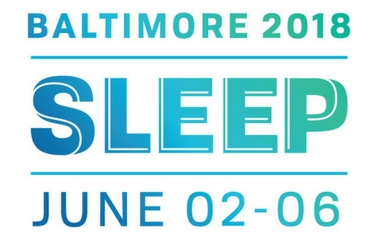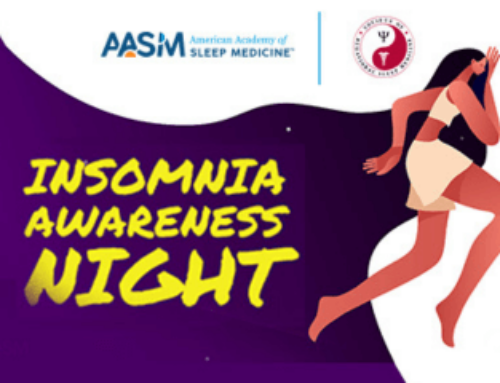BALTIMORE – Preliminary results from a new study indicate that greater amounts of daily screen time are associated with more insomnia symptoms and shorter sleep duration among adolescents.
Results show that for social messaging, web surfing and TV/movie watching, insomnia symptoms and sleep duration fully explained the association between screen-based activities and depressive symptoms.
“Higher rates of depressive symptoms among teens may be partially explained through the ubiquitous use of screen-based activities, which can interfere with high quality restorative sleep.” said postdoctoral researcher Xian Stella Li, PhD, who conducted the analyses with collaborators at Stony Brook University (Lauren Hale, PhD), Penn State University (Orfeu Buxton, PhD, Soomi Lee, PhD, and Anne-Marie Chang, PhD), and University of Wisconsin-Madison (Lawrence Berger, PhD).
“These results suggest that parents, educators and health care professionals could consider educating adolescents and regulating their screen time, as possible interventions for improving sleep health and reducing depression.” concluded principal investigator Lauren Hale, PhD, Professor of Family, Population, and Preventive Medicine and core faculty in the Program in Public Health at Stony Brook Medicine. She added, “We’re very interested to see whether the adverse influences of social media and screen use on sleep and mental health persist during the transition to adulthood.”
The study included data from 2,865 adolescents in the Fragile Families and Child Wellbeing Study’s teen survey. Participants had a mean age of 15.63 years, and 51 percent were male. Surveys included sleep characteristics: two insomnia symptoms (problems falling asleep, problems staying asleep), habitual weeknight sleep duration; and depressive symptoms. Teens reported the typical daily time spent (hours) on four screen-based activities (social messaging, web surfing, TV/movies, and gaming).
The research abstract was published recently in an online supplement of the journal Sleep and will be presented Monday, June 4, in Baltimore at SLEEP 2018, the 32nd Annual Meeting of the Associated Professional Sleep Societies LLC (APSS), which is a joint venture of the American Academy of Sleep Medicine and the Sleep Research Society.
The study was funded by the Eunice Kennedy Shriver National Institute for Child Health and Human Development (NIH R01 HD 073352).
Abstract Title: Insomnia Symptoms and Sleep Duration Mediate the Association between Adolescent Screen Time and Depressive Symptoms
Abstract ID: 0803
Poster Presentation: Monday, June 4, 5 p.m. to 7 p.m., Board 034
Presenters: Xian Stella Li, PhD, and Lauren Hale, PhD
Oral Presentation: Tuesday, June 5, 3 p.m. to 3:15 p.m., Room 328
Presenter: Xian Stella Li, PhD
For a copy of the abstract or to arrange an interview with the study author or an AASM spokesperson, please contact AASM Communications Coordinator Corinne Lederhouse at 630-737-9700, ext. 9366, or clederhouse@aasm.org.
About the American Academy of Sleep Medicine
Established in 1975, the American Academy of Sleep Medicine (AASM) improves sleep health and promotes high quality, patient-centered care through advocacy, education, strategic research, and practice standards. The AASM has a combined membership of 10,000 accredited member sleep centers and individual members, including physicians, scientists and other health care professionals. For more information about sleep and sleep disorders, including a directory of AASM-accredited member sleep centers, visit www.sleepeducation.org.









